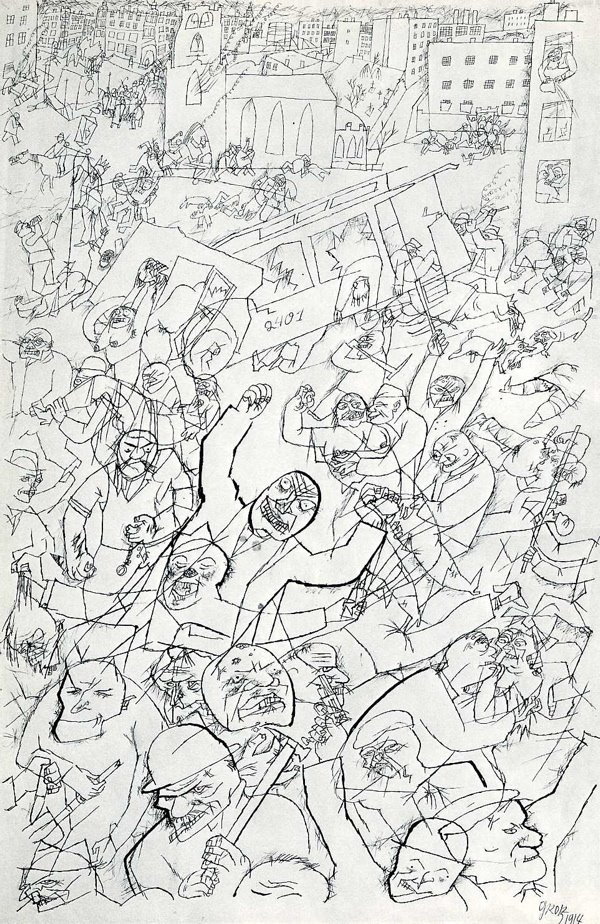Sadly, yes, the conversation goes on. It has been a 18 years since Ayatollah Khomeini issued a fatwa calling on all Muslims to execute those involved in the publication of Salman Rushdie's The Satanic Verses. It's been another 9 years since the Iranian government publicly declared that it would not carry out the death sentence against Rushdie. And then, ten days ago, England awarded Rushdie knighthood, and tempers flared again, when Pakistan remonstrated against the act and the Islamabad Traders' Association offered a reward of 10 million Pakistani rupees for Rushdie's beheading.
Now, I've never really understood what all the fuss was about. I chalk this up to two factors: 1) I am not Muslim, 2) I had no context for understanding the fuss when I read the book five years ago. But recently I started to think about the standard Western response to Pakistani anger -- the argument that holds that the book should exist on the grounds of free speech alone. And I am starting to wonder how true that is. Should it exist? I ask this question as a big Rushdie fan and someone who still doesn't quite understand how and why it has garnered the vitriol it has.
I think the only way to make this question meaningful for Westerners is to try to move it into a different domain, one where it might have a more comparable resonance. It does not, in my opinion, have any traction as a parallel to question whether an anti-Judeo Christian novel would provoke such anger. Obviously, it wouldn't, since insults to traditionally Western faiths are not dealt with in the same way as they are in Islam. Perhaps a better parallel, one which would provoke comparable anger in the United States, would be a novel about race. Would a powerfully written, best selling neo-nazi novel--one that wins the highest awards and whose author is publicly congratulated at the highest levels--be a more apt comparison? Is The Satanic Verses hate speech? Is it the rough equivalent of, say, The Turner Diaries?
Readers over at Al Jazeera English are talking about whether England should revoke Rushdie's knighthood. I offer this link not because I think England should necessarily take back the honor, but because the variety of responses offered by readers serves as a powerful insight into what that book actually means, and why, 18 years after the famous fatwa was issued, we're still talking about Rushdie.
Monday, June 25, 2007
The Rushdie Affair -- Are We Still Having This Conversation?
Posted by
Tim
at
11:16 AM
![]()
Labels: literature, religion
Subscribe to:
Post Comments (Atom)



1 comment:
Thanks for the link - those comments are certainly interesting. Though at the end of the day I'd really like to hear your personal opinion on whether or not England should revoke Rushdie's knighthood.
Personally, I'm a huge Rushdie fan. First and foremost, I think it's a shame he is so famous for this one book/incident, which, in my opinion, isn't his best or most exciting one. His oeurve (that's right, I went there) is really wonderful and important, and to make a decision based on whether or not he deserves this honorific based on one novel seems silly, at least from an artistic point of view. And since the knighthood is meant as an honor for an artist, I think that's the view to take.
You're right to point out the "standard Western response to Pakistani anger." But even a stopped clock is right twice a day. The Satanic Verses contains mean, nasty, disrespectful images of Islamic nations and leaders. But it's fiction, and it's satire, and that's what Rushdie does. He has produced equally scathing, nasty, mean-spirited portrayals of India, Hinduism, the United States, Christianity, and last but certainly not least... England! In fact, the only group/nation that he has written about without this (fantastic, beautifully executed) snarkiness is Nicaragua
Is the Satanic Verses hate speech? If it is, then so is Fury, The Moor's Last Sigh, and Midnight's Children. But Spain, the US, and India aren't up in arms. Maybe I am oversimplifying, but I think in this case that Pakistan is "firing up the base." Rushdie is a big, fun, public target for Islamic anger. But ultimately whether or not he gets to keep his knighthood matters very little in the grand scheme of East/West, Judeo/Christian/Muslim relations. If one wants to get mad in defence of Islam, there's plenty of other - better - material. His name is George W. Bush.
Oh, but how I do go on! On a lighter note, since you don't watch tv, you may have missed Salman Rushdie on the Colbert Report several weeks back, where he pulled the old "split screen pretend you're still in hiding then cut to the regular camera angle and be sitting at the anchor's desk" gag. Which was hiiiiiilarious, if not knightable in itself.
Post a Comment